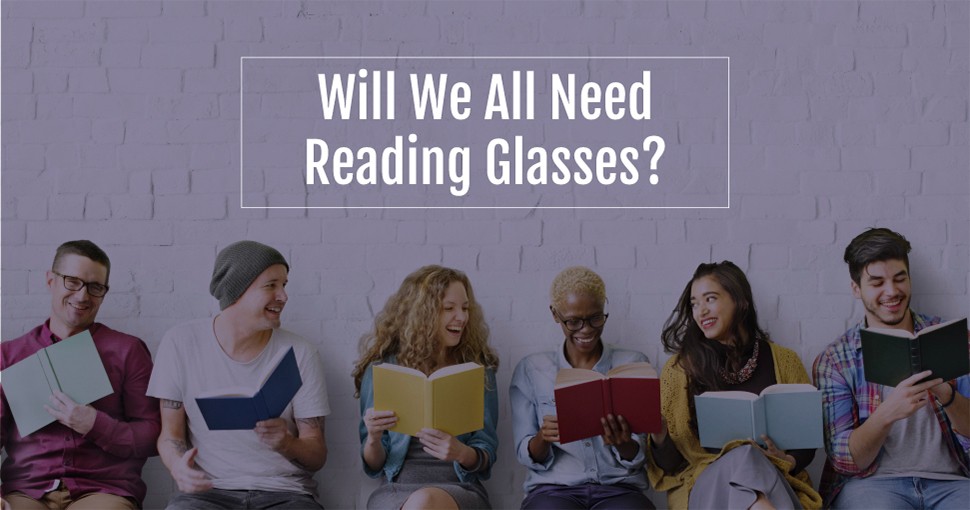Does Everyone Need Reading Glasses Eventually?

Does Everyone Need Reading Glasses Eventually?
An experienced eye doctor will tell you that vision and eye health are highly individual and each person will have a unique vision experience throughout their lives. However, the fact is that all adults who reach a certain age will have some age-related near-vision loss

Why Do We Need Reading Glasses After a Certain Age?
Many people begin to notice changes in their near vision around the age of 40 and the ability to focus on things such as phones, tablets, newspapers and up-close objects steadily declines until around 60 years of age

Presbyopia is part of the natural aging process. This progressive condition is characterized by changes in your eye’s lens. The lens is responsible for refracting light toward the retina at the back of the eye. Presbyopia causes the lens to stiffen and change shape and/or size in a way that makes it more difficult to see clearly at a close distance.
Want to know more about presbyopia? Our Vision Experts Answer 10 Common Questions About Presbyopia
Will I Need Reading Glasses Even If I Previously Had Perfect Vision?
Yes, since presbyopia affects everyone eventually. If you have never needed glasses or contacts before, you may find age-related vision changes to be especially frustrating. People who have worn corrective lenses throughout their lives for nearsightedness or farsightedness may cope with initial vision changes by simply adjusting their prescription.
It can be helpful to establish a relationship with an eye doctor near you. Experts recommend a comprehensive eye exam around age 40 even if you have not had previous vision issues

Are There Alternatives to Reading Glasses?
Reading glasses are often the go-to solution for presbyopia, but there are many reasons that people seek alternatives. Some people do not like the way that reading glasses look or feel and other people get sick of the hassle of taking them on and off to switch between tasks. Contact lenses or surgical procedures may be an option depending on your particular prescription, as well as your medical history and eye health. Learn about Presbyopia Treatment Options to Restore Near Vision and talk to your eye doctor about which vision treatment plan is best for your needs and goals.
 Sources
Sources
1 American Academy of Ophthalmology. Presbyopia. Available: https://eyewiki.aao.org/Presbyopia Accessed August 24, 2021.
2 Cleveland Clinic. Presbyopia. Available: https://my.clevelandclinic.org/health/diseases/8577-presbyopia Accessed August 24, 2021
3 Mayo Clinic. Presbyopia. Available: https://www.mayoclinic.org/diseases-conditions/presbyopia/diagnosis-treatment/drc-20363329 Accessed August 24, 2021.




